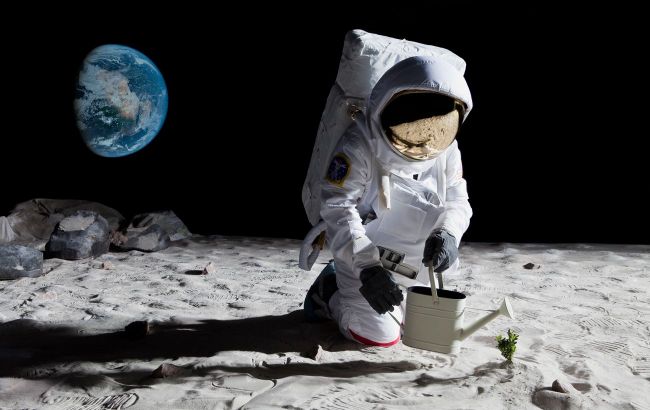Scientists discover extreme plant capable of surviving on Mars
 Scientists have named a plant that can survive on Mars (photo: Getty Images)
Scientists have named a plant that can survive on Mars (photo: Getty Images)
Scientists from the Xinjiang Institute of Geography and Ecology of the Chinese Academy of Sciences have discovered a plant that is most suitable for Mars colonization. They believe that this plant shows great potential for Mars exploration, The Guardian reports.
According to scientists, the moss Syntrichia caninervis, also known as steppe twisted moss, can survive on Mars. It is a common type of moss that grows in extreme conditions, including Tibet, Antarctica, and arid desert-steppe regions.
Scientists say it can withstand extreme drought, cold, and high radiation levels. They emphasized that their work is the first to investigate the survival of whole plants in such an environment, and also focuses on the potential for growing plants on the surface of Mars rather than in greenhouses.
"The unique insights obtained in our study lay the foundation for outer space colonisation using naturally selected plants adapted to extreme stress conditions," the authors of the study note.
In addition, the scientists describe this desert moss as an extreme survivor and a plant that quickly recovered from almost complete dehydration.
To test the plant's resistance to cold, the researchers stored the plants at -80 degrees (in an ultra-low temperature freezer) for three and five years and at -196 degrees (in a liquid nitrogen tank) for 15 and 30 days.
 Syntrichia caninervis (photo: Wikipedia)
Syntrichia caninervis (photo: Wikipedia)
In all cases, the moss samples regenerated after thawing, although their recovery was less rapid compared to control organisms that were dehydrated but not frozen.
The moss also demonstrated the ability to survive exposure to gamma radiation that would have destroyed most plants, and doses of 500 gray even seemed to promote the growth of Syntrichia caninervis. For comparison, a radiation dose of 50 gray causes convulsions and death in humans.
"Looking to the future, we expect that this promising moss could be brought to Mars or the moon to further test the possibility of plant colonisation and growth in outer space," the scientists write.
They add that these experiments are a significant first step, but they show that moss can be an important source of oxygen and that it is capable of reproducing and germinating in Martian conditions.
Moss can also help enrich and transform the rocky material found on the surface of Mars to enable the growth of other plants.
Earlier, we wrote that a new lake was found on Mars, but there can't be water there.
Read also that scientists have found evidence that there may be life on Mars.

